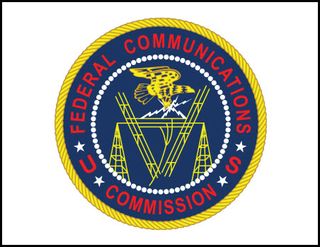Wheeler Circulates Lifeline Migration 2.0 Proposals

FCC Chairman Tom Wheeler has circulated a number of proposals--primarily a Further Notice of Proposed Rulemaking--to restructure the Universal Service Fund's lifeline subsidy as it is migrated from traditional phone to broadband service. The plan is to vote on those proposals at the June public meeting.
Lifeline provides subsidies, paid by telecoms and, ultimately, their subs, for essential communications services for low-income Americans. The proposals do not deal with the contribution side--whether broadband operators will have to pay into the subsidy, too. That is the subject of a separate proceeding, with the FCC awaiting input from the USF Joint Board.
The Lifeline "reboot" includes adding broadband service to the subsidy, establishing minimum services standards for both phone voice and broadband that are sufficiently robust for modern demands--the FCC is seeking input on what those should be, but has not offered any tentative conclusions.
FCc Chairman Tom Wheeler has signaled that 25 Mbps on the broadband side should be table stakes for speeds in the digital age, although in the USF Connect America Fund, part of the migration of USF subsidies to rural, hard-to-reach areas, the FCC in April set 10 Mbps as a baseline (http://www.broadcastingcable.com/news/washington/fcc-makes-17b-available...).
The FCC is expecting to keep the subsidy at $9.25 per month, for either phone or broadband, but seeks comment on whether that is the right price.
The chairman is also proposing not to allow lifeline providers to verify the eligibility of their customers, which the FCC says invites waste and is both a potential conflict and a burden on providers. Instead, the FCC is looking for an independent third party to do the verification.
The FCC began Lifeline modernization and teed up the broadband migration in 2012, with reforms addressing waste, fraud and abuse, including an accountability database that FCC officials say helped reverse runaway spending and virtually eliminate duplicative payments.
Multichannel Newsletter
The smarter way to stay on top of the multichannel video marketplace. Sign up below.
In those reforms, the FCC considered establishing a budget for the program. The new proposals seek input on whether this would be the right time to establish that budget--it concluded back in 2012 that that was not the time.
The proposals also seek comment on whether nontraditional providers can compete in the program.
FCC officials also say the proposals would build on waste, fraud and abuse reforms from 2012 by:
1, "Requiring providers to retain documentation regarding the eligibility of their Lifeline customers to facilitate oversight and audits."
2. "Extending all record retention requirements from three to ten years."
3. "Increasing program transparency by making key performance data easily available to the public."
All the proposals are still just that. The commissioners will have to approve--the chairman almost certainly has the votes, then the public will get to comment and the FCC would have to vote again on a final order.
"The FCC’s January 2012 reforms of its Lifeline program have saved U.S. ratepayers billions, strengthening oversight and eliminating waste, fraud and abuse," said Amina Fazlullah, Benton Foundation director of policy in response to the FCC proposals. "With these reforms now implemented, the Benton Foundation welcomes today’s action by FCC Chairman Tom Wheeler to take the next step and modernize Lifeline to reflect the reality of 2015: home broadband service is no longer a luxury, but an essential service for education, public health, public safety, jobs and the economy."
Contributing editor John Eggerton has been an editor and/or writer on media regulation, legislation and policy for over four decades, including covering the FCC, FTC, Congress, the major media trade associations, and the federal courts. In addition to Multichannel News and Broadcasting + Cable, his work has appeared in Radio World, TV Technology, TV Fax, This Week in Consumer Electronics, Variety and the Encyclopedia Britannica.

